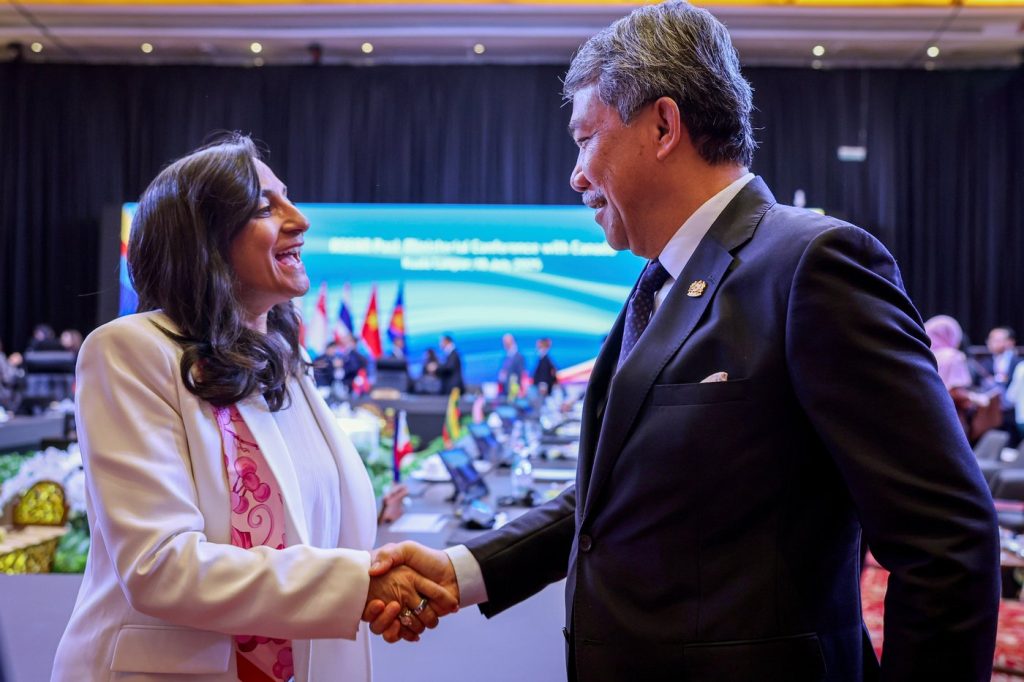OTTAWA - Foreign Affairs Minister Anita Anand has indicated a significant shift in Canada's foreign policy, with an increased emphasis on economic interests in its relationships, particularly within the Indo-Pacific region. This change comes as Canada seeks to mend its strained diplomatic ties with India, which have been under pressure due to recent events.
Anand's recent trip to Japan and Malaysia marks her first visit to the Indo-Pacific since assuming her role as foreign minister in May. Throughout her journey, she emphasized that while Canada is revisiting its foreign policy, it does not intend to discard the foundational priorities set by the previous Liberal government under former Prime Minister Justin Trudeau. Anand stated, “It is important for us to revisit our policy, not only in the Indo-Pacific but generally speaking, to ensure that we are focusing not only on the values that we have historically adhered to,” highlighting the need for a balanced approach in foreign relations.
The Trudeau administration previously incorporated language concerning environmental protection, labor standards, and gender equality into its trade agreements, which some critics, such as Goldy Hyder of the Business Council of Canada, argue made Canada appear “a bit preachy” in its dealings with other nations. Hyder advocates for a more respectful approach when promoting democratic values internationally.
Under Prime Minister Mark Carney—who was previously the governor of the Bank of Canada—there is a burgeoning focus on economic strategy and building domestic capacities. Carney aims to reshape Canada's trade and security frameworks to reduce dependency on the United States. Until now, his administration has concentrated primarily on Europe, having visited three times since March. Anand’s recent visits are said to “set the stage” for Carney's forthcoming engagements in Southeast Asia, notably his planned attendance at the ASEAN leaders’ summit in Malaysia and the APEC forum in South Korea.
During her trip, Anand signed an important information-sharing agreement in Tokyo, which may pave the way for future defense procurement deals. She also participated in discussions related to ASEAN in Malaysia—the region that is central to Canada's evolving Indo-Pacific strategy. Significant to note, Anand's visit coincides with Canada's attempts to restore diplomatic relations with India, following two years marked by tension after the 2023 murder of Sikh activist Hardeep Singh Nijjar, a case that Canadian authorities linked to Indian government operatives.
The RCMP previously noted evidence suggesting India's involvement in acts targeting Sikh-Canadians, which led Canada to expel six Indian diplomats, prompting reciprocal expulsions from New Delhi. India has accused Canada of facilitating a separatist movement for Khalistan, which it views as a violation of its sovereignty.
Carney has been proactive in thawing relations, having invited Indian Prime Minister Narendra Modi to the G7 summit in Alberta, resulting in an agreement to reinstate high commissioners from both countries. New Delhi and Ottawa are also initiating security discussions, given India's status as the world's most populous nation and a key ally in Carney's vision of diversifying Canada's trade beyond its heavy reliance on the U.S.
Though negotiations over a trade agreement with India have been ongoing since 2010, they have frequently stalled, especially after Canada paused discussions in light of the Nijjar incident. Despite the diplomatic rifts, Hyder noted that India's corporate sector is encouraging Canadian companies to continue trade expansion, underscoring the potential for a resolution in the future.
Vijay Sappani from the Macdonald-Laurier Institute expressed optimism regarding the timeline for a potential India-Canada trade deal, suggesting that with the right efforts, an agreement could be reached within the year. He emphasized that a robust relationship with India is critical for Canada to engage successfully in global markets, particularly in light of the challenges faced recently.
While Anand refrained from specifying the timeline for appointing top envoys or starting trade negotiations with India, she affirmed a methodical approach: “We will take the relationship with India one step at a time. That timeline will be steady, not immediate.”
This renewed focus on economic engagement and strategic partnerships demonstrates Canada's commitment to redefining its role on the global stage, particularly in the context of Asia-Pacific dynamics.











